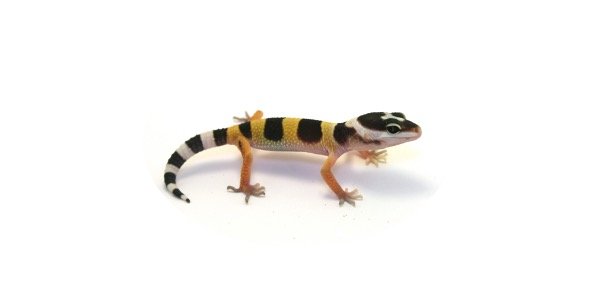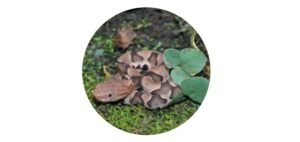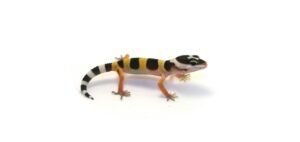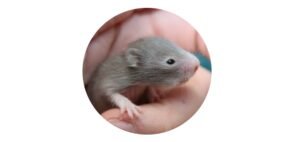Baby Turkeys: Hatching, Care of Young, & Facts
Table of Contents
Baby Turkeys: All You Need To Know
Turkey is the common birds are native to North America. Benjamin Franklin had vouched for them to be the national bird of the USA instead of the bald eagle. Even though they are so common many ranchers and even farmers know little about their young ones.
This article highlights information on turkey poult, how to care for baby turkeys and what to feed them.
Are Baby Turkeys Called Chicks?
Chick is a common term usually referred to for baby chickens but many people do use the term for a baby turkey even though they have a more specific name.
What’s a Baby Turkey Called?
Baby Turkeys are referred to as poults for the first 28 days after hatching. A male turkey baby is known as jake while a female baby is known as jenny.
Baby Turkeys are protected and guided by their mothers during this period as they are vulnerable at this stage to predators.
Are Baby Turkeys White or Yellow?
The newborns Baby Turkeys are usually grey, brown, white, or mottled but most of them are yellow, especially in the case of domesticated ones. Whereas the wild poults are partially yellow.
There also exist instances when the newborn poults may lack any yellow pattern altogether.
Baby Turkey Sex
It is hard to distinguish the different sexes of turkey until they turn 3 weeks. The jake or male turkey one will strat to strut while the female ones do not strut.
The jakes make different movements to make them look large like they might fan their tail feathers, will display their feathers in contour, or may drop their wings. They stay upright and often keep their heads close.
If such a display is seen then it is a male turkey. As the jakes age, you can spot their heads and tails turning bright red with a few sparks of burgundy or blue that are noticed as they strut.
Can You Tell The Gender of a Turkey by its Poop?
This might be intriguing but their poop or drooping can help identify their gender. The male turkey’s droppings are spiral-shaped whereas in the case of female turkeys their droppings are shaped in the pattern of the letter J.
These small birds or Baby Turkeys are thermophilic and thus, require a heat lamp especially for baby turkeys. The temperature of the incubator should be set and maintained at 95°- 98°F for the poults.
Baby Turkeys should be supervised under the incubator and observe their behavior. They would gather around the light if it is too cold and if it is too hot they will stay away from the center. If the temperature is right they would act normal.
Each following week the temperature in the incubator should be decreased by 5°F until the temperature of surrounding matches with the brooder. The heat lamp can be lifted higher to adjust the temperature.
No drafts should be allowed in the incubator and sufficient airflow should be maintained. Care should be taken that the poults don’t get cold or wet.
How Long Do Baby Turkeys Stay With Their Mother?
Baby Turkeys stay alongside their mother for a period of 8 weeks after hatching. As their feathers have not fully developed they might not be able to insulate themselves and may get cold. After 8 weeks, their feathers have fully grown and they can survive outside.
If the temperature of the surrounding is still too cold, then you should not allow them outside in this weather. A heat lamp is essential in keeping them warm and dry at night times.
Where Do Baby Turkeys Sleep at Night?
The wild Baby Turkeys may sleep under their mother’s wings during the starting few months usually on the ground. They may snuggle and sleep with their parents at night on low branches after about 1 month.
Are Baby Turkeys Hard to Raise?
Breeding and raising turkeys can be challenging especially when compared to birds like chickens and ducks as they are more vulnerable to environmental mismanagement and may be sensitive to their nutritional requirements.
Thus, their requirements like food, proper sanitation as well as disease prevention should be taken care of if you want to raise turkeys well.
Another thing that you need to care about is that these common birds dwell in flocks and therefore, you cannot just have one.
If you want to flock them with other birds, make sure that the sanitation is well accounted for to avoid disease transmission from them to the turkey.
How to Raise Baby Turkeys?
The temperature should be maintained as they love to be warm. This can be achieved by employing a heat lamp in the coop.
You should also make sure that they are clean and dry. Their bedding can be made of rice husks and pine bark. Enough cold water should alos be provided to them.
Their diet should be rich in proteins as their protein requirement is higher than chickens. Starter proteins of 28% can be used for baby turkeys for the first 6 to 8 weeks.
For them, turkey or wild bird specialised food can be used to feed them.
What to Feed?
The poults should have a feeding schedule as given below:
For the first 8 weeks: a starter of 28% protein should be fed to them.
8 weeks – 6 months: crushed protein grower of 24-26% for turkey.
6 months and above: layer pellets, crumbles, or mash of 16-18%
Graden trimming, greens, scratch, bread can be fed to baby turkey as snacks but their quantity should be limited. If they are spoiled with a lot of snacks they may not want to eat their nutritious food.
Can Baby Turkeys Eat Bananas?
Yes, you can feed them small pieces of banana. Other snacks that they enjoy include grapes, acorns, bread, and raisins.
What not to Feed?
Things you should refrain from feeding them include chicken layer pellets, breeder mash, and oyster shells. These are high calcium foods that can cause different impairments related to the liver, bone and kidney.
Foods like potato peels, rhubarb leaves, and avocados, can be toxic if consumed in a larger quantity. Scratch should not be fed before they turn 8 weeks old.
Notices on other Baby Turkey Problems
The poultry may have flustered skin, maybe lethargic, blood in droopings, and have droopy wings if they get infected by coccidiosis. This is a contagious protozoan that causes this common illness.
There is no antibiotic cure for this, sulfa drugs like Sulmet are recommended. The poults should be kept segregated from the adults.
As they grow they have developed natural immunity against coccidiosis. Young turkeys often indulge in picking their newly grown feathers.
This can be due to overcrowding, overheating, more light than required, and lack of protein-rich feed.
It is critical to identify the cause and adjust them so that they may stop picking on their feathers that can become a habit that is not good for them.
Why do my baby turkeys chirp so much?
This behavior can be attributed to many reasons like if the temperature is not set right. They would chirp frequently and loudly if they were uncomfortable.
In this case, try to make them comfortably warm by adjusting the temperature. Another reason for this behavior can be a lack of food or water. You should make the containers accessible to them and make sure they stay fixed upright.
They might also chirp if they are in pain or are uncomfortable. This may occur if they get sick or infected. Proper sanitation should be maintained for keeping them well.
It might take a lot of effort to raise baby turkeys and there are things to consider and know that would make you a good rancher.










